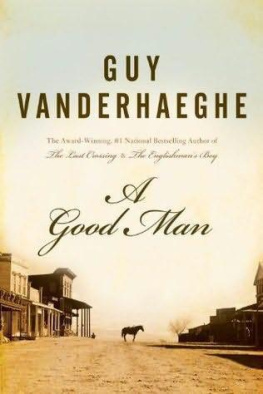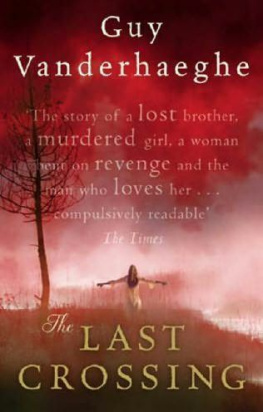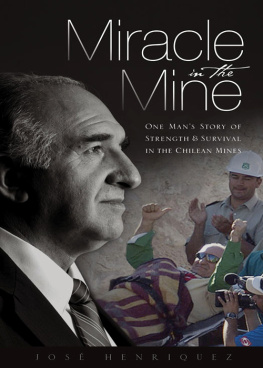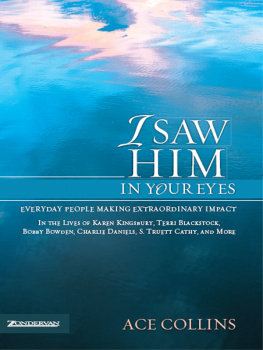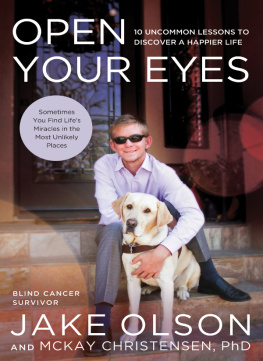The Author
GUY VANDERHAEGHE was born in Esterhazy, Saskatchewan, in 1951. He received his B.A. (1971) and his M.A. (1975) from the University of Saskatchewan and his B.Ed. (1978) from the University of Regina.
In his first volume of fiction, twelve stories gathered together under the title Man Descending (1982), Vanderhaeghe recounts the dilemmas and the humiliations of a variety of male characters, ranging in age from childhood to old age. The collection won the Governor Generals Award for Fiction and went on to receive the Faber Prize in Great Britain. In his subsequent fiction, which includes two more collections of short stories and four novels, he has won further awards and acclaim, his recent novels being historical fiction of the west.
In addition to his fiction, Vanderhaeghe has also written two plays: I Had a Job I Liked . Once., which premiered in 1991, and Dancocks Dance, which premiered in 1995.
Guy Vanderhaeghe lives in Saskatoon, Saskatchewan.
THE NEW CANADIAN LIBRARY
General Editor: David Staines
ADVISORY BOARD
Alice Munro
W.H. New
Guy Vanderhaeghe
Copyright 1982 by Guy Vanderhaeghe
Afterword copyright 2004 by Leo McKay.
Printed by permission of the author.
This book was first published by Macmillan of Canada in 1982 New Canadian Library edition 2004
All rights reserved. The use of any part of this publication reproduced, transmitted in any form or by any means, electronic, mechanical, photocopying, recording, or otherwise, or stored in a retrieval system, without the prior written consent of the publisher or, in case of photocopying or other reprographic copying, a licence from the Canadian Copyright Licensing Agency is an infringement of the copyright law.
Library and Archives Canada Cataloguing in Publication
Vanderhaeghe, Guy, 1951-
Man descending / Guy Vanderhaeghe ;
with an afterword by Leo McKay.
First published: Toronto : Macmillan, 1982.
Includes bibliographical references.
eISBN: 978-1-55199-568-7
I. Title.
PS 8593. A 5386 M 3 2004 C 813.54 C 2004-901149-9
We acknowledge the financial support of the Government of Canada through the Book Publishing Industry Development Program and that of the Government of Ontario through the Ontario Media Development Corporations Ontario Book Initiative. We further acknowledge the support of the Canada Council for the Arts and the Ontario Arts Council for our publishing program.
McClelland & Stewart Ltd.
75 Sherbourne Street
Toronto, Ontario
M5A 2P9
www.mcclelland.com/NCL
v3.1
Contents
The Watcher
I SUPPOSE it was having a bad chest that turned me into an observer, a watcher, at an early age.
Charlie has my chest, my mother often informed friends. A real weakness there, she would add significantly, thumping her own wishbone soundly.
I suppose I had. Family lore had me narrowly escaping death from pneumonia at the age of four. It seems I spent an entire Sunday in delirium, soaking the sheets. Dr. Carlyle was off at the reservoir rowing in his little skiff and couldnt be reached something for which my mother illogically refused to forgive him. She was a woman who nursed and tenaciously held dark grudges. Forever after that incident the doctor was slightingly and coldly dismissed in conversation as a man who betrayed the publics trust.
Following that spell of pneumonia, I regularly suffered from bouts of bronchitis, which often landed me in hospital in Fortune, forty miles away. Compared with the oxygen tent and the whacking great needles that were buried in my skinny rump there, being invalided at home was a piece of cake. Coughing and hacking, I would leaf through catalogues and read comic books until my head swam with print-fatigue. My diet was largely of my own whimsical choosing hot chocolate and graham wafers were supplemented by sticky sweet coughdrops, which I downed one after another until my stomach could take no more, revolted, and tossed up the whole mess.
With the first signs of improvement in my condition my mother moved her baby to the living-room chesterfield, where she and the radio could keep me company. The electric kettle followed me and was soon burbling in the corner, jetting steam into the air to keep my lungs moist and pliable. Because I was neither quite sick nor quite well, these were the best days of my illnesses. My stay at home hadnt yet made me bored and restless, my chest no longer hurt when I breathed, and that loose pocket of rattling phlegm meant I didnt have to worry about going back to school just yet. So I luxuriated in this steamy equatorial climate, tended by a doting mother as if I were a rare tropical orchid.
My parents didnt own a television and so my curiosity and attention were focused on my surroundings during my illnesses. I tried to squeeze every bit of juice out of them. Sooner than most children I learned that if you kept quiet and still, and didnt insist on drawing attention to yourself as many kids did, adults were inclined to regard you as being one with the furniture, as significant and sentient as a hassock. By keeping mum I was treated to illuminating glances into an adult world of conventional miseries and scandals.
I wasnt sure at the age of six what a miscarriage was, but I knew that Ida Thompson had had one and that now her plumbing was buggered. And watching old lady Kuznetzky hang her washing, through a living-room window trickling with condensed kettle steam, I was able to confirm for myself the rumour that the old girl eschewed panties. As she bent over to rummage in her laundry basket I caught a brief glimpse of huge, white buttocks that shimmered in the pale spring sunshine.
I also soon knew (how I dont remember exactly) that Norma Ruggs had business with the Liquor Board Store when she shuffled by our window every day at exactly 10:50 a.m. She was always at the store door at 11:00 when they unlocked and opened up for business. At 11:15 she trudged home again, a pint of ice cream in one hand, a brown paper bag disguising a bottle of fortified wine in the other, and her blotchy complexion painted a high colour of shame.
Poor old girl, my mother would say whenever she caught sight of Norma passing by in her shabby coat and sloppy mans overshoes. They had been in high school together, and Norma had been class brain and valedictorian. She had been an obliging, dutiful girl and still was. For the wine wasnt Normas the ice cream was her only vice. The booze was her husbands, a vet who had come back from the war badly crippled.
All this careful study of adults may have made me old before my time. In any case it seemed to mark me in some recognizable way as being different or queer for a kid. When I went to live with my grandmother in July of 1959 she spotted it right away. Of course, she was only stating the obvious when she declared me skinny and delicate, but she also noted in her vinegary voice that my eyes had a bad habit of never letting her go, and that I was the worst case of little pitchers having big ears that she had ever come across.
I ended up at my grandmothers because in May of that year my mothers bad chest finally caught up with her, much to her and everyone elses surprise. It had been pretty generally agreed by all her acquaintances that Mabel Bradleys defects in that regard were largely imagined. Not so. A government-sponsored X-ray program discovered tuberculosis, and she was packed off, pale and drawn with worry, for a stay in the sanatorium at Fort QuAppelle.
For roughly a month, until the school year ended, my father took charge of me and the house. He was a desolate, lanky, drooping weed of a man who had married late in life but nevertheless had been easily domesticated. I didnt like him much.
My father was badly wrenched by my mothers sickness and absence. He scrawled her long, untidy letters with a stub of gnawed pencil, and once he got shut of me, visited her every weekend. He was a soft and sentimental man whose eyes ran to water at the drop of a hat, or more accurately, death of a cat. Unlike his mother, my Grandma Bradley, he hadnt a scrap of flint or hard-headed common sense in him.
Next page

